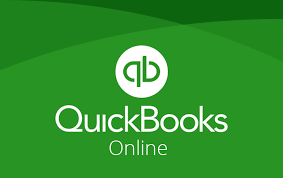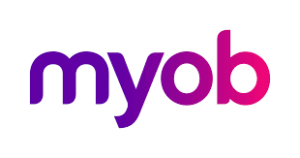As a small business owner in Singapore, managing your finances effectively is crucial for growth and success. With the advancement of technology, numerous financial software options are available to simplify and streamline your accounting processes.
In this blog, we will explore the top 5 financial software solutions for small businesses in Singapore, including detailed descriptions, pricing information, pros, and cons
Best 5 Financial Software in Singapore
QuickBooks Online:

QuickBooks Online is a cloud-based accounting software designed for small businesses. It offers a user-friendly interface with a wide range of features, including invoicing, expense tracking, bank reconciliation, and financial reporting. QuickBooks Financial Software also integrates with various third-party applications, providing additional functionality and customization options.
Pricing:
QuickBooks Online offers different pricing plans to cater to the specific needs of small businesses. The plans range from SGD 10 to SGD 40 per month, depending on the features and level of service required.
Pros:
- User-friendly interface, making it easy to navigate and use.
- Real-time access to financial data from anywhere, anytime.
- Integration with other business applications, enhancing efficiency.
- Robust invoicing and expense tracking capabilities.
- Comprehensive financial reporting for better insights.
Cons:
- Some advanced features are available only in higher-priced plans.
- Limited user permissions and access controls in lower-tier plans.
- Additional costs may apply for certain features and add-ons.
Xero:

Xero is another popular cloud-based accounting software widely used by small businesses in Singapore. It offers a range of features, including invoicing, expense tracking, bank reconciliation, and payroll management. Xero emphasizes automation and collaboration, allowing seamless integration with banks, payment gateways, and third-party applications.
Pricing:
Xero offers three pricing plans, starting from SGD 20 to SGD 40 per month, depending on the business’s needs and requirements.
Pros:
- Intuitive and user-friendly interface.
- Excellent automation capabilities, saving time and effort.
- Extensive integrations with banks and third-party applications.
- Efficient invoicing and expense tracking functionalities.
- Strong emphasis on collaboration, facilitating teamwork.
Cons:
- Pricing may be higher compared to some competitors.
- Certain advanced features are available only in higher-priced plans.
- Limited customization options for reports.
Wave Financial:

Wave Financial is a free accounting software designed specifically for small businesses, including freelancers and startups. It provides core accounting features such as invoicing, expense tracking, receipt scanning, and financial reporting. Wave Financial’s simplicity and affordability make it an attractive option for small businesses on a tight budget.
Pricing:
Wave Financial offers a free version of its software, with additional optional paid services such as payment processing and payroll.
Pros:
- Free accounting software with essential features.
- User-friendly interface, easy to set up and use.
- Simplified invoicing and expense tracking functionalities.
- Receipt scanning feature for easy expense management.
- Integration with payment processing and payroll (optional paid services).
Cons:
- Limited customer support for free users.
- Not as robust in terms of advanced features compared to some paid software.
- Limited customization options for reports and invoices.
Zoho Books:

Zoho Books is a comprehensive accounting software suitable for small businesses. It offers features such as invoicing, expense tracking, bank reconciliation, inventory management, and project tracking. Zoho Books also integrates with other Zoho business applications, providing a holistic solution for business management.
Pricing:
Zoho Books offers different pricing plans, starting from SGD 12 to SGD 29 per organization, per month, depending on the features and number of users required.
Pros:
- Comprehensive accounting features for small businesses.
- Integration with other Zoho business applications.
- Robust inventory management and project tracking capabilities.
- In-depth financial reporting and analytics.
- Affordable pricing plans for small businesses.
Cons:
- Learning curve for new users, especially those unfamiliar with Zoho products.
- Certain advanced features may require higher-priced plans.
- Limited customization options for reports and templates.
MYOB:

MYOB (Mind Your Own Business) is a popular accounting software used by small businesses in Singapore. It offers a range of features, including invoicing, expense tracking, inventory management, payroll, and time billing. MYOB provides flexibility and scalability, accommodating the needs of businesses as they grow.
Pricing:
MYOB offers different pricing plans, starting from SGD 8 to SGD 75 per month, depending on the features and level of service required.
Pros:
- Comprehensive accounting features suitable for growing businesses.
- Scalable software with options for additional modules.
- Efficient inventory management and payroll functionalities.
- Strong customer support and training resources.
- Integration with other MYOB business solutions.
Cons:
- Pricing may be higher compared to some competitors.
- Certain advanced features are available only in higher-priced plans.
- Limited customization options for reports and templates.
Conclusion:
Choosing the right financial software for your small business in Singapore is essential for effective financial management. Each of the top 5 software options mentioned in this article offers unique features, pricing plans, and pros and cons.
Remember to take advantage of free trials and demos to test the software before committing. Consider your business requirements, budget, and user-friendliness when selecting the best QuickBooks financial software for your small business in Singapore.
